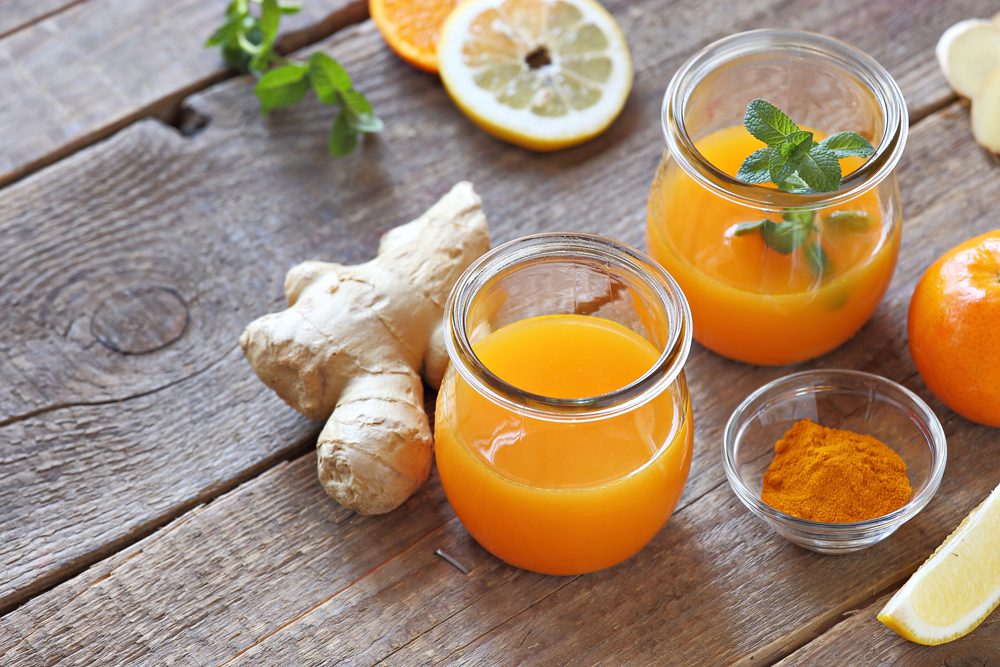Heartburn – one of the most uncomfortable sensations we can experience.
Statistics show that it’s affecting more than 60 million people in our country every single month.
But why does it happen to so many of us? Can we ever prevent or stop heartburn for good?
Today, experts will reveal 11 foods that give almost all of us heartburn without even realizing. Before that, though, we should explain what heartburn is and how it works.

What is heartburn?
Although it’s not a disease per se, heartburn is the most prevalent symptom of acid reflux.
In simple terms, acid reflux is caused by a weakened lower esophageal sphincter. This muscle is located in your throat and it works as a barrier that keeps stomach acid from climbing upwards; the only time it opens is when your swallow.
People with acid reflux have a weak lower esophageal sphincter that allows stomach acid to climb up, hence causing those uncomfortable sensations of burning and pain.
Even healthy individuals can experience heartburn as some foods can weaken the lower esophageal sphincter.
Knowing which foods have that effect can reduce heartburn and help us live a healthier, happier lifestyle, so let’s find them out!
Mint
Drinking mint or peppermint tea can do wonders for your health whenever you experience digestive problems such as bloating or nausea.
However, consuming high doses of spearmint can have the negative side effect of causing heartburn.
Unlike other foods, spearmint doesn’t weaken the lower esophageal sphincter; instead, it irritates this barrier to the point you experience the same sensations as heartburn.
Additionally, this study published in the journal Gastroenterological Review looked at 500 subjects, part of which were consuming peppermint tea. Shockingly, the group who drank peppermint tea daily had a 50% higher risk of experiencing heartburn as opposed to those who didn’t.
If you enjoy your daily cup of tea, try to see if there’s a link between the moment you drink it and your heartburn. You can reduce your intake or eliminate it altogether for a few days to see if the heartburn disappears.
It might also be caused by the next food group on our list…
High-fat foods
Here’s a rule of thumb: every food with a high fat concentration can give you heartburn.
Sadly, this includes healthy fatty foods such as avocado, cheese and fatty fish like salmon. If you notice heartburn after consuming high-fat foods, here’s why:
Fatty foods can relax the lower esophageal sphincter, thus allowing stomach acid to travel upwards into the esophagus and cause that unpleasant burning sensation.
Additionally, fatty foods also promote the production of cholecystokinin (CCK), a hormone also known for causing acid reflux.
CCK also keeps foods in the stomach for longer than usual, thus stimulating the production of stomach acid. This process increases your chances of experiencing heartburn.
Whether we’re talking about healthy high-fat foods, processed meats or junk food, you should limit your intake as much as possible if you’re dealing with heartburn often.

Citrus juice
We already know sugary beverages like Coke or Pepsi are bad for our health. Therefore, many people are turning to fresh fruit juices believing they’re a healthier alternative.
Firstly, natural fruit juice can contain just as much sugar (in the form of fructose) as a can of Coke.
Secondly, fresh fruit juice (especially citrus) can trigger heartburn for most people for a very simple reason: citrus contains acid.
This study from the journal Gastroenterology analyzed more than 400 people who were given orange or grapefruit juice. According to the results, 73% of the participants reported heartburn after drinking these beverages!
Researchers are still trying to figure out the exact reason why citrus juice causes heartburn for so many people. However, if you want to avoid this symptom, it’s best to reduce your intake or avoid citrus juice as much as possible.
Salt
This is pretty broad, huh? I mean, most of us are adding salt to nearly everything we eat from snacks to breakfasts and even some desserts.
Sadly, though, multiple studies such as this one from the journal Gut proved that people who eat salty foods more than three times a week have a 50% higher risk of experiencing acid reflux compared to those who avoid salted foods altogether.
Much like citrus juice, though, specialists are still trying to understand why so many people experience heartburn after eating salty meals and snacks. One theory suggests that those who eat salty foods also usually eat more fatty meals, which can weaken the lower esophageal sphincter.
Salt can affect your health in many other ways including heart disease and high cholesterol.
Onions
Onions are one of the biggest triggers for heartburn – and if you’re going to eat them raw, the risk is even higher.
Much like fatty foods, onions can relax the lower esophageal sphincter, thus allowing stomach acid to reach your esophagus. Multiple studies have already proven this fact.
In this study, for example, a group of people experiencing heartburn were offered a hamburger. The next day, the same subjects were given the exact same hamburger, except that this time it had onions in it too.
According to participants’ reports, the hamburger with onions gave them a much worse heartburn than the one without onions.
Note that onions are also a powerful source of fermentable fiber – a nutrient known for causing belching. This process can also increase your frequency of acid reflux.
Alcohol
Oh, the joy of having a glass of wine or a cold beer after a long day – if only that heartburn wouldn’t show up to ruin every evening!
Alcohol can affect your body in many ways, one of them being acid reflux. For one, these beverages lower your esophageal sphincter shortly after consumption.
Secondly, alcohol (particularly beer and wine) increase the amount of stomach acid which translates into a higher risk of having heartburn.
Furthermore, alcohol has a similar impact to mint as it irritates the lining of your esophagus.
If you’re used to drinking alcohol frequently, though, heartburn is the least harmful consequence you’ll experience.
Spicy foods
No matter how healthy you are, eating a spicy meal can still trigger heartburn – and for good reason.
Spicy meals contain a substance called capsaicin, which slows down the normal digestion process. Since the food you’re eating will stay in the stomach for longer, it’ll also increase the risk of acid reflux.
According to this study published in the Journal of Gastroenterology and Hepatology, people who eat foods cooked with chili powder had a slower rate of digestion.
Spicy foods are also notorious for irritating the esophagus, which can make acid reflux symptoms even worse.
Nevertheless, many spicy meals are healthy, so you shouldn’t cut them from your diet completely. You can try reducing the spicy ingredients when cooking or adding a non-spicy side to reduce the risk of heartburn.
Coffee
Aside from being most people’s savior in the morning, coffee also offers many health benefits, including antioxidants and improved blood circulation.
However, consuming coffee excessively can also give you heartburn because it relaxes the lower esophageal sphincter.
Researchers still aren’t sure what causes this effect precisely. Although many studies proved that coffee can trigger acid reflux, some studies also point out that caffeine itself isn’t the culprit.
If that’s the case, it could mean that other coffee additions are to blame for heartburn.
If your daily cup of coffee is enhanced with sugar, toppings and creams, their high sugar content might trigger acid reflux. The simplest solution in this case is to replace those sweet treats with plain coffee, so that you can get your morning dose of energy safely!

Milk
Have you ever heard that milk can be used to treat heartburn?
This piece of advice is surprisingly popular these days considering that it’s actually not working!
According to this piece of research from the journal Gastroenterology, drinking whole milk can actually increase your stomach acid – which is, as we know, a risk factor for heartburn.
Not everyone gets heartburn from milk, though. This study, for instance, was performed on 400 participants who were constantly dealing with heartburn. Only 38% of the subjects reported heartburn after drinking whole milk, which suggests that this food isn’t a trigger for everyone.
If you’re having acid reflux, start paying attention to what you’re eating and figure out whether milk causes it or not.
This unpleasant symptom might sometimes be linked to a hidden lactose intolerance.
Carbonated drinks
There’s nothing like drinking a can of ice-cold soda on a hot summer day.
Unfortunately, though, this seemingly innocent habit can give you one of the worst heartburns of your day. Why?
So far, specialists discovered that sodas and other carbonated beverages can relax the esophageal sphincter. Furthermore, these treats increase the production of stomach acid, which further increases your risk of heartburn.
According to this study published in the journal Chest, acid reflux caused by soda manifests especially during nighttime. The study, performed on more than 15,000 participants, revealed that 25% of the people had nighttime heartburn after drinking soda or carbonated beverages.
This study from the Journal of Neurogastroenterology and Motility also showed that people who constantly drink carbonated beverages are 69% more likely to experience acid reflux and symptoms like heartburn.
How can you ease heartburn?
If you’ve made it this far in our post, congratulations! Now you know how to protect yourself from acid reflux by avoiding common foods that can cause this unpleasant condition.
However, some people are naturally more prone to acid reflux. If you’re constantly experiencing heartburn regardless of what you eat, some foods might ease the symptoms temporarily.
Here are the most common foods that can work wonders for many people’s heartburn:
- Bananas: Simple, affordable and tasty, bananas are very low in acid, yet they’re high in fiber, which means they can reduce the stomach acid that might cause your heartburn.
- Oatmeal: This is one of the best sources of fiber, which means that it can reduce stomach acid as well. You can find many interesting recipes such as banana-oatmeal cookies that might turn out to be real life-saviors.
- Potatoes: According to this study from the journal Gastroenterology Research and Practice, consuming grains and potatoes can lower your risk of acid reflux by more than 40%. Make sure to cook them in healthy ways, as deep-frying (for example) can have the exact opposite impact and increase heartburn.
- Green veggies: These foods are simply perfect for anyone dealing with acid reflux: they’re low in sugar, acid and fat, so they don’t have any heartburn risks at all! The most popular options are broccoli, celery, spinach and green beans.
- Ginger: Aside from being a great source of antioxidants, ginger is one of the best remedies for stomach problems including nausea, vomiting and acid reflux. You can use ginger as a spice for many meals or consume it as a tea.
Your takeout
Heartburn isn’t a medical condition, but rather a symptom of acid reflux. Although it’s unpleasant, it isn’t life threatening and it affects tens of millions of people in our country constantly.
Many foods can cause heartburn and spotting them can help you decrease your risk of experiencing this symptom. If you’re still unsure which foods or eating habits give you heartburn, you can try eliminating the risky ones one at a time to figure out which is the culprit.
Having a balanced diet is the key of keeping your digestive system healthy in the long run. Here at Wellness Captain, we know how important nutrition is – and we made it our mission to give you expert-verified tips on eating right.
With that in mind, I’m going to leave one of our most popular nutrition posts here: 10 Reasons You Should Eat Like Your Ancestors













